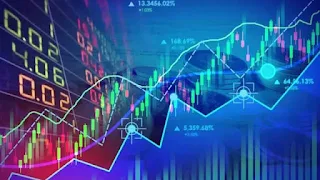The Online Charts web widget is a free embeddable charting tool that supports analysis of various Forex and CFD market instruments with candle, line, and bar charts. With its intuitive interface and a range of available languages, the widget is easy to use for both beginners and traders who look to perform advanced analysis with drawing tools, technical indicators, and economic calendar events.
The widget uses real-time and historical quotes, with data frequency ranging from ticks to months. The data includes spot prices for EUR/USD, USD/JPY, GBP/USD, EUR/JPY, USD/CAD, AUD/USD, USD/PLN, XAU/USD, USD/CNH, USA500.IDX, JPN.IDX, DEU.IDX, BRENT.CMD, bitcoin cryptocurrency (BTC/USD), as well as numerous other currency pairs and commodity, stock, and index CFDs.
Important: CFD data feed is displayed with delay.
The tool can be embedded into any website with a simple copy-paste of the code and supports various customisation options both in design and functionality.
Technical Indicators
The Technical Indicators web widget is an embeddable technical analysis tools that gives an overview of trading signals based on the most popular indicators: Moving Average Convergence Divergence (MACD), Relative Strength Index (RSI), Stochastic Oscillator (Stochastic), Average Directional Index (ADX), Commodity Channel Index (CCI), Aroon Oscillator (AROON), Alligator, and Parabolic Stop and Reverse (SAR). The widget translates the values of the indicators into three types of signals: “Buy”, “Sell”, and “Neutral”.
The signals are available for various Forex market instruments, commodity, index, and stock CFDs, and bitcoin, for time frames ranging from five minutes to one month.
Currency Converter Advanced
The advanced version of the Currency Converter widget for websites adds perspective to a simple currency calculator by showing the dynamics of exchange rates via historical charts and tables of live quotes. The tool also offers a handy travel reference card – a cheatsheet with a list of conversion results from predefined round amounts of selected currencies.
The conversion itself uses real-time rates and adjusts the result by the commission Dukascopy Bank would charge for the operation.
The list of available instruments consists of a wide range of Forex instruments, including the US Dollar (USD), the Euro (EUR), the Japanese Yen (JPY), the British Pound (GBP), the Swiss Franc (CHF), the Canadian Dollar (CAD), the Australian Dollar (AUD), the New Zealand Dollar (NZD), the South African Rand (ZAR), and gold (XAU).
Online News
The Online News web widget is an embeddable real-time financial news aggregator. It streams announcements and articles on Forex and commodity markets, companies and stocks, and global economies from approximately 500 news providers, including central banks, credit rating agencies, auditors, stock exchanges, and major news agencies such as Reuters, MarketWatch, and CNBC. The live stream is available in 22 languages
Currency Indexes
The Currency Index widget for websites offers a view of the general trends on the currency market. It tracks the performance of each of the chosen currencies against a basket of its most liquid peers by aggregating the moves of its exchange rates into easy-to-understand Forex indexes. Thus each index represents a string of average changes of the rates compared to the closing prices for a fixed base date. These changes, or returns, are expressed in percentages, with the values of the index on the base day set to 100%. Consequently, a value below 100% implies a decrease relative to the base date, and a value above 100% shows a rise.
The currencies available in the widget are the Euro (EUR), the Pound (GBP), the Swiss Franc (CHF), the US Dollar (USD), and the Yen (JPY). The pairs used in calculations of a specific index always contain the corresponding currency as the base currency, even if the standard notation has it listed second. Thus an increase in the index always points to the strengthening of the currency against its peers, while a decrease indicates a weakening.
The widget allows to set the desired base date, and indicate the period of time that will be displayed on the chart by choosing the start date, which is the date of the first shown value, and the number of days to follow it.





